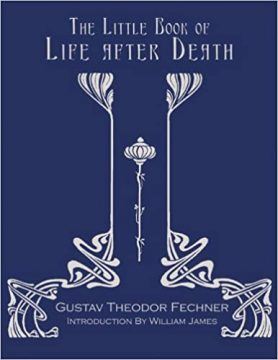Nicholas Cannariato at The Hedgehog Review:
 The soul exists. That’s what it does. It doesn’t need traditional religion or occultist speculation to justify, let alone explain, its existence. The soul can simply be a thing-in-itself, free from purpose or the need to be redeemed or maintained or isolated for study. We often talk about the soul simply as the nonmaterial and thus mysterious aspect of our being, something we feel but can’t point to—or what is silent and constant, enclosed in our mortal coil. It’s also entirely possible that there’s no nonmaterial part of our being, and whatever intangible dimension of ourselves we feel or think we feel is just, as yet, unexplained by science. Or maybe we do have souls, but they die with the body. Given such speculative uncertainty, the closest approach to the soul for many without recourse to religious reassurance is “consciousness,” though this may amount to no more than replacing one word with another.
The soul exists. That’s what it does. It doesn’t need traditional religion or occultist speculation to justify, let alone explain, its existence. The soul can simply be a thing-in-itself, free from purpose or the need to be redeemed or maintained or isolated for study. We often talk about the soul simply as the nonmaterial and thus mysterious aspect of our being, something we feel but can’t point to—or what is silent and constant, enclosed in our mortal coil. It’s also entirely possible that there’s no nonmaterial part of our being, and whatever intangible dimension of ourselves we feel or think we feel is just, as yet, unexplained by science. Or maybe we do have souls, but they die with the body. Given such speculative uncertainty, the closest approach to the soul for many without recourse to religious reassurance is “consciousness,” though this may amount to no more than replacing one word with another.
But if one wishes to give form to spirit, as well as cast off the yoke of moralism and dogma, the work of Gustav Theodor Fechner (1801–87), a nineteenth-century German physicist, philosopher, and psychologist, may be one place to begin.
more here.
